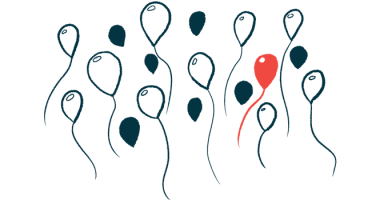Alnylam Plans to Pursue Full Approval of Givosiran, Potential Therapy for Acute Hepatic Porphyria

Alnylam Pharmaceuticals, after consulting with the U.S. Food and Drug Administration, plans to pursue full approval of its lead therapy candidate, givosiran, for the treatment of acute hepatic porphyria (AHP), rather than accelerated approval.
The full approval will be based on the complete results of the ongoing Phase 3 ENVISION clinical trial (NCT03338816), which are expected in early 2019.
The FDA has agreed that Alnylam can begin putting together the paperwork required for a new drug application later this year on a “rolling” submission basis, meaning it can submit portions of the application as they are completed with full clinical sections to be submitted at the end of ENVISION, assuming positive results.
“This filing plan creates the potential to achieve full approval as rapidly as possible and aligns with our strategy in all other countries,” Akin Akinc, PhD, Alnylam’s vice president and general manager of the Givosiran program, said in a press release.
While a full approval will take longer than an accelerated approval, Paul Matteis — an analyst at Stifel Financial — believes Alnylam’s decision was based on the fact that enrollment for ENVISION was completed ahead of schedule, which will provide full results sooner than originally planned, and that these results would come in the middle of the FDA review of the accelerated approval, which would potentially create a “complicating dynamic,” Ben Fidler at Xconomy reports.
Givosiran is an investigational RNA interference (RNAi) therapy designed to block the activity of the aminolevulinic acid synthase 1 (ALAS1) enzyme to prevent the accumulation of toxic molecules that cause AHP.
RNAi is a natural process of gene silencing that regulates gene expression, in which small interfering RNA (siRNA) molecules bind to a specific messenger RNA (mRNA) — a molecule generated from DNA that guides the production of a specific protein — targeting it for destruction, ultimately preventing the production of that protein.
Since specific siRNA molecules can be designed for any given gene and a single siRNA molecule is able to silence many target mRNAs, RNAi therapy against ALAS1 — such as givosiran — has the potential to prevent or reduce the occurrence of severe and life-threatening attacks, and ease symptoms of AHP.
Previous results from Phase 1 (NCT02452372) and Phase 1/2 (NCT02949830) trials have shown that givosiran effectively reduced the rate of porphyria attacks and hemin use — a standard therapy for acute attacks.
ENVISION, a randomized, double-blind, placebo-controlled, multicenter Phase 3 study, is evaluating the safety and effectiveness of givosiran in 94 AHP patients at 36 sites in 18 countries.
In late August, Alnylam announced interim data regarding the first 41 participants of ENVISION who had completed at least three months of treatment, which showed that givosiran significantly reduced the levels of ALA — a key biomarker of AHP — compared with a placebo.
The trial’s primary goal is to assess the annualized rate of porphyria attacks requiring hospitalization, urgent healthcare visits, or hemin administration at home, after six months of treatment.
Participants who complete the six-month treatment period will have the option to move to an open-label extension study, in which they will be able to continue the therapy for up to 30 months.
“Based on our positive Phase 1/2 clinical results presented earlier this year and the positive interim analysis results from the ENVISION Phase 3 trial, we’re encouraged by givosiran’s potential to make a difference in the lives of AHP patients,” Akinc said.






